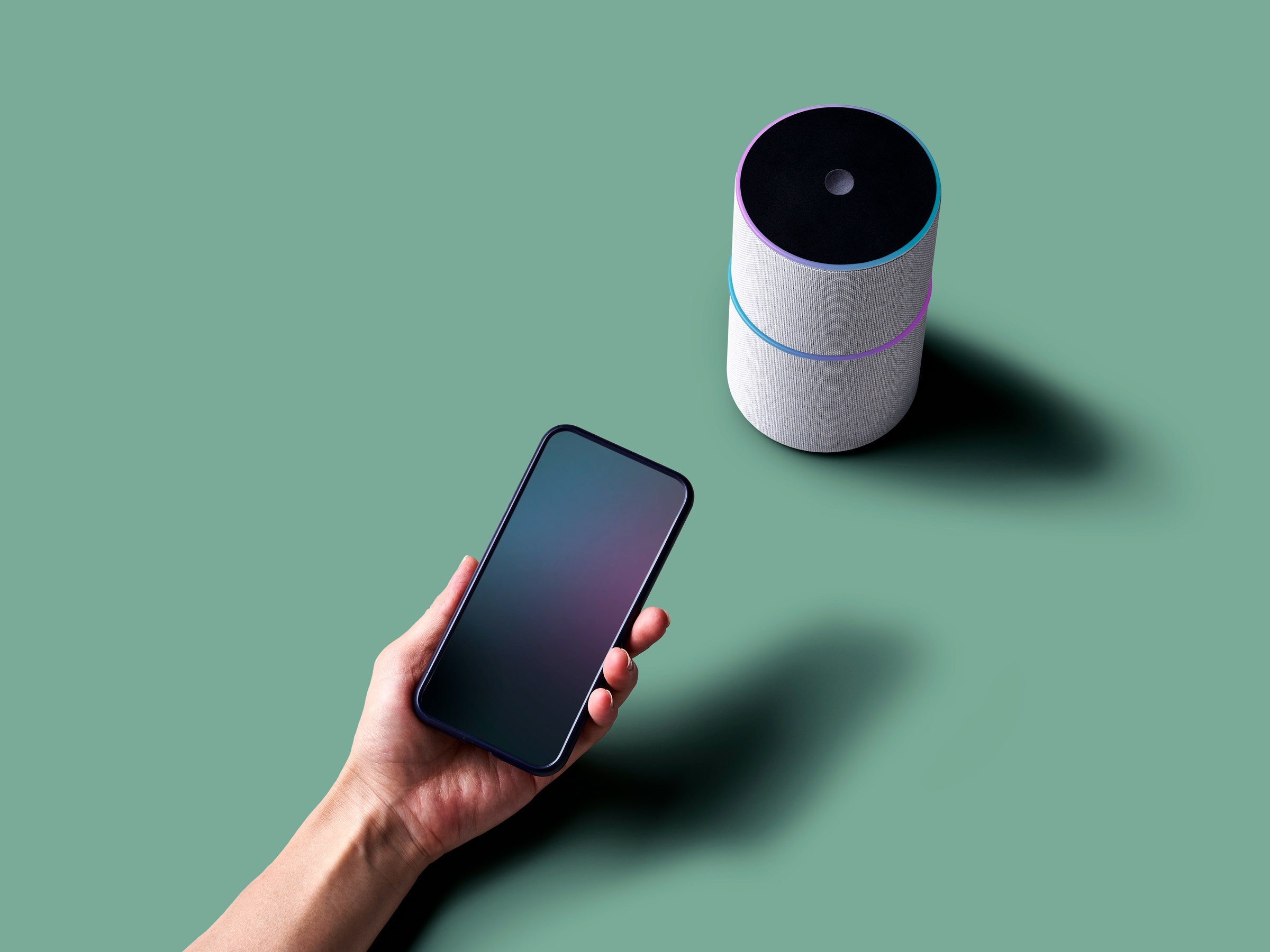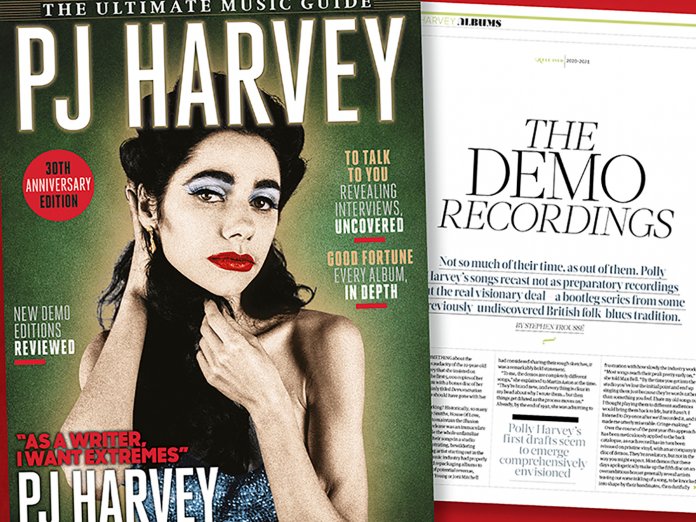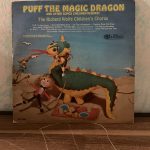The modern era in music is characterized by evolving genres, technological advancements, and a global exchange of ideas. The fusion of different musical styles has led to the emergence of unique and innovative sounds.
From the advent of recording technology to the rise of digital streaming platforms, technology has drastically changed the way music is created, produced, and consumed. Additionally, the internet has provided musicians with various platforms to showcase their talent and reach a global audience.
As artists experiment with different influences and push the boundaries of traditional music, the modern era continues to witness a rich and diverse musical landscape. Whether it’s the fusion of electronic and traditional instruments or the incorporation of global musical elements, the modern era in music is a constant evolution of creativity.

Credit: www.wired.com
Exploring The Evolution Of Genres In The Modern Era
Tracing The Roots Of Popular Genres In Modern Music
Throughout history, music has constantly evolved, reflecting the ever-changing tastes and influences of society. The modern era in music, in particular, has seen the emergence and transformation of various genres. Tracing the roots of these popular genres allows us to understand their origins and appreciate their impact on the music industry today.
Key points:
- Rock ‘n’ roll: Born in the 1950s, rock ‘n’ roll combined elements of rhythm and blues, country, and gospel music. Artists like elvis presley and chuck berry paved the way for this genre, which later gave rise to various subgenres such as hard rock, punk rock, and alternative rock.
- Pop music: Originating in the 1960s, pop music gained popularity due to its catchy melodies and the rise of teenage culture. Artists like the beatles and michael jackson established themselves as pop icons, influencing generations to come.
- Hip hop: Emerging in the 1970s in african american and latino communities, hip hop revolutionized the music industry with its distinctive style of rapping and sampling. This genre expanded beyond music, encompassing elements of fashion, art, and dance.
- Electronic dance music (edm): With its roots in disco and electronic music, edm made waves in the 1980s and 1990s with the rise of techno and house music. Djs like daft punk and calvin harris propelled this genre to mainstream popularity, leading to the emergence of subgenres like dubstep and trap.
The Impact Of Technology On The Creation And Spread Of New Genres
Technology has played a pivotal role in driving the creation and spread of new genres in the modern era of music. Advancements in recording, production, and distribution have revolutionized the industry, enabling artists to explore innovative sounds and reach a global audience like never before.
Key points:
- Digital recording: The advent of digital recording techniques has made it easier for artists to experiment and manipulate sounds, resulting in the birth of unique subgenres within existing genres. This has allowed for greater creativity and diversity in music production.
- Online streaming platforms: Platforms like spotify and apple music have made it simpler for artists to share their music directly with listeners, bypassing traditional gatekeepers. This has facilitated the rise of genres such as lo-fi hip hop and bedroom pop, which have gained popularity through online communities.
- Music production software: Software such as ableton live and fl studio has democratized music production, making it accessible to aspiring artists across the globe. This has led to the emergence of bedroom producers and diy musicians who create and distribute music independently, often blurring the lines between genres.
How Globalization Has Influenced The Fusion Of Different Musical Styles
Globalization has had a significant impact on the fusion of different musical styles in the modern era. As boundaries blur and cultural exchange becomes more prevalent, artists now draw inspiration from diverse traditions, resulting in the creation of hybrid genres that combine elements from various music cultures.
Key points:
- World music: The blending of traditional music from different regions has given rise to the genre of world music. This genre incorporates elements from various cultures, producing a rich tapestry of sounds and rhythms that celebrate global diversity.
- Latin pop: The fusion of latin american rhythms with pop music has resulted in the emergence of latin pop. Artists like shakira and j balvin have popularized this genre by infusing their music with elements of reggaeton, salsa, and bachata.
- Afrobeats: Originating from west africa, the genre of afrobeats combines traditional african rhythms with contemporary elements of hip hop, dancehall, and pop music. Artists such as wizkid and burna boy have propelled this genre to international recognition, bringing african music to a global stage.
Music is a dynamic art form that reflects the cultural, technological, and social changes of our time. As we explore the evolution of genres in the modern era, we are reminded of the power of music to unite people across borders and create a universal language that transcends barriers.
Key Artists And Their Contributions
Highlighting Influential Musicians Who Have Shaped The Modern Music Landscape
Music has always been a powerful reflection of the times we live in. As we step into the modern era, there is a wave of talented artists who have not only revolutionized the way we experience music but have also left an indelible mark on the industry.
Let’s take a closer look at some of these incredible musicians and their contributions:
- Beyoncé: This multi-talented artist has redefined the boundaries of pop music with her powerhouse vocals, captivating performances, and socially conscious lyrics. From empowering anthems like “formation” to soulful ballads like “halo,” beyoncé’s impact is undeniable.
- Kendrick lamar: Known for his thought-provoking lyrics and introspective storytelling, kendrick lamar is one of the most influential hip-hop artists of our time. With critically acclaimed albums like “good kid, m.a.a.d city” and “to pimp a butterfly,” he has brought socially relevant themes to the forefront of the genre.
- Taylor swift: From her country roots to becoming a pop sensation, taylor swift has become a dominant force in the music industry. With her honest songwriting and catchy melodies, she has earned a dedicated fanbase and numerous accolades along the way.
- Ed sheeran: Known for his heartfelt ballads and intricate acoustic guitar skills, ed sheeran’s infectious melodies and relatable lyrics have made him a favorite among a wide audience. His ability to blend genres seamlessly has made him a unique presence in the modern music landscape.
Examining Their Unique Sound, Creative Process, And Impact On The Industry
These influential musicians possess distinctive qualities that set them apart from their peers. Let’s dive into their unique sound, creative process, and the impact they have had on the music industry:
- Beyoncé: With her unmatched vocal prowess and powerful stage presence, beyoncé has consistently pushed the boundaries of pop music. Her creative process involves meticulous attention to detail in both her music and visuals, creating a complete visual and auditory experience for her fans. Through her advocacy for women’s rights and support for the black community, beyoncé has become an influential figure beyond the realm of music.
- Kendrick lamar: Kendrick lamar’s sound is characterized by intricate wordplay, concept albums, and an incorporation of various musical styles. His creative process involves a deep exploration of personal experiences, social issues, and a desire to inspire change. Lamar’s impact on the industry is significant, as he has elevated the standards for lyricism and storytelling in hip-hop.
- Taylor swift: Taylor swift’s sound has evolved over the years, transitioning from country to pop. With her storytelling abilities and relatable lyrics, she has managed to captivate audiences across different genres. Swift’s creative process involves drawing inspiration from personal experiences, crafting narratives that resonate with listeners. Her impact on the industry can be seen in the rising popularity of narrative-driven songs and the influence she wields over her massive fanbase.
- Ed sheeran: Ed sheeran’s unique sound is a blend of pop, folk, and acoustic elements. His creative process involves personal storytelling and heartfelt songwriting. Sheeran’s impact on the industry lies in his ability to bring attention back to the simplicity of a singer-songwriter, reminding us of the power of raw talent and honest lyrics.
Showcasing A Diverse Range Of Artists Across Various Genres
The modern music landscape thrives on diversity, with artists from various genres leaving their mark. Let’s explore a few more notable musicians who have contributed significantly:
- Billie eilish: This teenage sensation has taken the music industry by storm with her dark and atmospheric sound. With introspective lyrics and a unique vocal style, billie eilish has gained recognition for her genre-bending music, pushing the boundaries of pop.
- Travis scott: As a prominent figure in the trap and hip-hop genre, travis scott embraces experimental production and immersive live performances. With albums like “astroworld,” he has become a symbol of pushing artistic boundaries and delivering a multisensory experience for his fans.
- Dua lipa: Dua lipa’s catchy pop sound and empowering lyrics have made her a chart-topping sensation. With her infectious energy and strong vocal delivery, she has become a voice for female empowerment in the music industry.
- The weeknd: Known for his dark and atmospheric sound, the weeknd has become a global icon in the realm of contemporary r&b. With his soulful vocals and introspective lyrics, he has pushed the boundaries of what mainstream r&b can be.
The modern era in music is a testament to the diverse talent and innovative approaches of these key artists. Whether through their unique sound, creative process, or impact on the industry, they have left an undeniable legacy that will continue to shape the musical landscape for years to come.
The Influence Of Technology On Music Production And Consumption
The modern era has witnessed a significant transformation in the music industry, heavily influenced by advancements in technology. From digital recording techniques to streaming platforms and social media, technology has revolutionized both the production and consumption of music. In this section, we will explore the role of digital recording and production techniques, the rise of streaming platforms, and the impact of social media on artist promotion and audience engagement.
The Role Of Digital Recording And Production Techniques In Shaping Modern Music
- Digital recording and production techniques have greatly impacted the way music is created and produced in the modern era.
- Key points:
- Digital recording enables artists to manipulate and edit audio files with precision, allowing for endless creative possibilities.
- Advanced software and hardware tools have made music production more accessible, empowering aspiring musicians to create professional-quality recordings from the comfort of their own homes.
- Auto-tune and pitch-correction software have become prominent tools in modern music production, shaping the sound of contemporary vocal performances.
- Sampling and remixing techniques have gained popularity, allowing artists to incorporate elements from different genres and eras, creating unique and innovative compositions.
- The ability to collaborate remotely has been enhanced through digital platforms, enabling musicians from different parts of the world to work together seamlessly.
Exploring The Rise Of Streaming Platforms And Their Effect On The Music Industry
- Streaming platforms have revolutionized the way music is consumed, presenting both opportunities and challenges for artists and the industry as a whole.
- Key points:
- Streaming platforms, such as spotify, apple music, and deezer, have become the primary method of music consumption for many listeners, leading to a decline in physical sales and digital downloads.
- The rise of streaming has shifted the revenue model, with artists relying more on royalties and playlist placements for income.
- Access to a vast music library and personalized recommendations have broadened listeners’ music horizons, exposing them to a diverse range of artists and genres.
- However, the streaming economy poses challenges for artists, as the royalty rates per stream are relatively low, making it difficult for emerging artists to earn a sustainable income solely through streaming.
- Despite the challenges, streaming platforms have also provided independent artists with a level playing field, allowing them to reach a global audience without the need for traditional record label deals.
Analyzing The Impact Of Social Media On Artist Promotion And Audience Engagement
- Social media platforms have emerged as powerful tools for artist promotion, fan engagement, and community building.
- Key points:
- Artists can harness social media to directly connect with their audience, share updates on new releases, tour dates, and behind-the-scenes content, fostering a sense of intimacy and engagement.
- Platforms like instagram, tiktok, and youtube have catapulted emerging artists to stardom, providing a platform for discovery and viral trends.
- Influencer marketing and collaborations between artists and social media influencers have become common strategies for reaching a wider audience and increasing exposure.
- Social media has democratized the promotion process, allowing artists to build a dedicated fan base and gain recognition outside of traditional industry gatekeepers.
- However, the constant demand for content and the pressure to maintain an online presence can also have negative effects on artists’ mental health and creative process.
Technology has undeniably shaped and transformed the music industry in the modern era. From digital recording techniques that have empowered musicians to produce their own music, to the rise of streaming platforms that have changed the way we consume music, and the impact of social media on artist promotion and audience engagement, technology plays a pivotal role in shaping the industry’s landscape.
Despite its challenges, technology continues to offer new possibilities and opportunities for artists to create, share, and connect with their audience in ways that were previously unimaginable.
The Changing Nature Of Music Distribution And Promotion Strategies
In the modern era, the music industry has undergone a significant transformation in terms of how music is distributed and promoted. With the advancements in technology and the rise of the internet, traditional methods of distribution and promotion have been challenged and new strategies have emerged.
In this section, we will explore the key changes in music distribution and promotion and the pros and cons of traditional versus modern methods. We will also delve into the rise of independent artists and how the industry has become more democratized.
Lastly, we will examine some innovative promotional strategies used by artists in the modern era.
Traditional Vs. Modern Methods Of Music Distribution And Their Pros And Cons
**traditional methods of music distribution**
- Physical sales through cds and vinyl records.
- Promotion through radio airplay and music videos.
- Pros:
- Wider reach through physical stores and radio stations.
- Provides a tangible product for fans.
- Cons:
- Limited accessibility for independent artists.
- Higher production and distribution costs.
**modern methods of music distribution**
- Online platforms like streaming services and digital downloads.
- Social media marketing and self-promotion.
- Pros:
- Instant and global accessibility.
- Lower costs and barriers to entry for independent artists.
- Cons:
- Increased competition due to oversaturation.
- Decreased revenue from streaming platforms.
The Rise Of Independent Artists And The Democratization Of The Industry
In the digital age, independent artists have gained more prominence and influence in the music industry. They now have the opportunity to reach a wider audience without relying on major record labels. Here are some key points to consider:
- Independent artists can self-publish their music and distribute it through online platforms.
- They have more control over their creative process and career decisions.
- Independent artists can engage directly with their fans through social media and build a dedicated fanbase.
- The rise of independent artists has led to a more diverse and eclectic music landscape.
Examining Innovative Promotional Strategies Used By Artists In The Modern Era
In the modern era, artists have found new and innovative ways to promote their music and connect with their audience. Here are some examples:
- Collaborations with brands and influencers to expand their reach.
- Creative music videos and visual storytelling to engage viewers.
- Live streaming performances and virtual concerts to connect with fans globally.
- Interactive fan experiences through social media challenges and contests.
- Utilizing data analytics and targeting algorithms to reach the right audience.
The changing nature of music distribution and promotion strategies has revolutionized the industry. Traditional methods have given way to modern digital platforms, providing more opportunities for independent artists while also presenting new challenges. As the music industry continues to evolve, artists will need to embrace innovative strategies to stand out in a crowded marketplace and connect with their audience on a deeper level.
The Social And Cultural Impact Of Modern Music
Modern music has significantly shaped and reflected the social and cultural landscape of our times. It serves as a powerful conduit for societal trends, values, movements, and activism. With its influence spanning across diverse communities, modern music has embraced and promoted diversity, inclusivity, and social change.
Let’s delve into the ways in which modern music impacts our society and culture.
How Modern Music Reflects And Shapes Societal Trends And Values:
- Modern music acts as a mirror of society, reflecting the hopes, aspirations, and concerns of the masses.
- Artists often use their music as a platform to voice their opinions and shed light on social issues and injustices.
- Music captures the zeitgeist of different eras, serving as a time capsule for future generations to understand the prevailing sentiments and values of the time.
- Genres such as hip-hop, punk rock, and protest folk have revolutionized music by challenging societal norms and expressing dissent.
- The evolving sound and lyrics of modern music often influence and shape popular culture, fashion, and lifestyle trends.
Analyzing The Influence Of Music On Cultural Movements And Activism:
- Music has played a pivotal role in galvanizing cultural movements and raising awareness about various issues.
- Protest songs have been the anthems of countless social and political movements throughout history, including civil rights, anti-war, and lgbtq+ movements.
- Artists use their music to mobilize communities, unite them in a collective cause, and inspire action towards societal change.
- Music festivals and concerts often become platforms for activists to address the masses, spreading messages of empowerment and unity.
- The ability of music to transcend language barriers has enabled global collaboration and solidarity among musicians and activists.
Exploring The Role Of Music In Promoting Diversity, Inclusivity, And Social Change:
- Modern music celebrates diversity by embracing various musical styles and cultural influences.
- Artists from marginalized communities have used music to reclaim their narratives and amplify their voices.
- Music festivals and events promote inclusivity by featuring artists from different backgrounds and fostering cultural exchange.
- Artists such as bob marley, nina simone, and beyoncé have used their platforms to advocate for social change and equality.
- Organizations and initiatives like music against racism and girls rock camp foundation actively work towards using music as a tool for social justice and empowerment.
Modern music holds immense power in reflecting societal trends, shaping cultural movements, and advocating for social change. It acts as a driving force for diversity, inclusivity, and unity in an ever-evolving world. Through the melodies and lyrics of modern music, we find inspiration, solidarity, and a collective voice that resonates across generations.
Let us continue to appreciate and harness the transformative power of music in our ongoing quest for a better and more equitable society.
Frequently Asked Questions For Modern Era In Music
What Is The Significance Of The Modern Era In Music?
The modern era in music is a transformative period characterized by innovative techniques, genres, and technology. It has revolutionized the way we create, produce, and consume music, allowing artists to experiment and connect with audiences on a global scale. This era has brought forth groundbreaking collaborations and the exploration of diverse musical styles.
How Has Technology Impacted The Modern Era In Music?
Technology has played a pivotal role in shaping the modern era in music. From the advent of digital recording and production software to streaming platforms and social media, artists now have unprecedented access to recording tools, distribution channels, and promotional platforms.
This has democratized the music industry, empowering independent artists, and offering limitless opportunities for creativity and exposure.
What Are The Emerging Trends In Modern Music?
In the modern era, there are several emerging trends in music. Collaborations between artists from different genres, the fusion of traditional and contemporary styles, and the incorporation of electronic elements into various genres are gaining popularity. Additionally, the rise of music festivals, live streaming concerts, and interactive fan experiences are transforming the way music is experienced and enjoyed.
How Has The Modern Era Impacted The Listener’S Music Consumption Habits?
The modern era has revolutionized the way listeners consume music. With the rise of streaming platforms, listeners now have access to a vast library of songs on-demand. This has led to a shift from physical sales to streaming and the creation of personalized playlists.
Moreover, social media has given listeners the ability to engage directly with artists, forming a sense of community and fostering a more interactive music consumption experience.
Is The Modern Era In Music Blurring Genre Boundaries?
Yes, the modern era in music has witnessed a significant blurring of genre boundaries. Artists are increasingly experimenting with different styles, merging elements from multiple genres to create unique sounds. This cross-pollination of genres has led to the emergence of hybrid genres and the breakdown of traditional genre classifications.
This artistic freedom has allowed for greater innovation and diversity in modern music.
Conclusion
The modern era in music has undoubtedly revolutionized the way we listen, create, and consume melodies. Technology has paved the way for innovative sounds, blending traditional genres with modern elements. Artists now have the freedom to experiment with various styles, resulting in captivating and boundary-pushing musical experiences.
This digital age has made music accessible to a wider audience, blurring geographical and cultural boundaries. Streaming platforms and social media have become powerful tools for artists to connect directly with their fans, fostering a sense of intimacy and authenticity.
With the rise of independent artists and self-production, music has become a democratic art form, allowing talented individuals to showcase their work without the traditional gatekeepers. The future of music holds endless possibilities, where technology will continue to shape the soundscapes of tomorrow.
As listeners, we can expect music to continue evolving and surprising us with its creativity and ability to captivate our hearts and minds.













